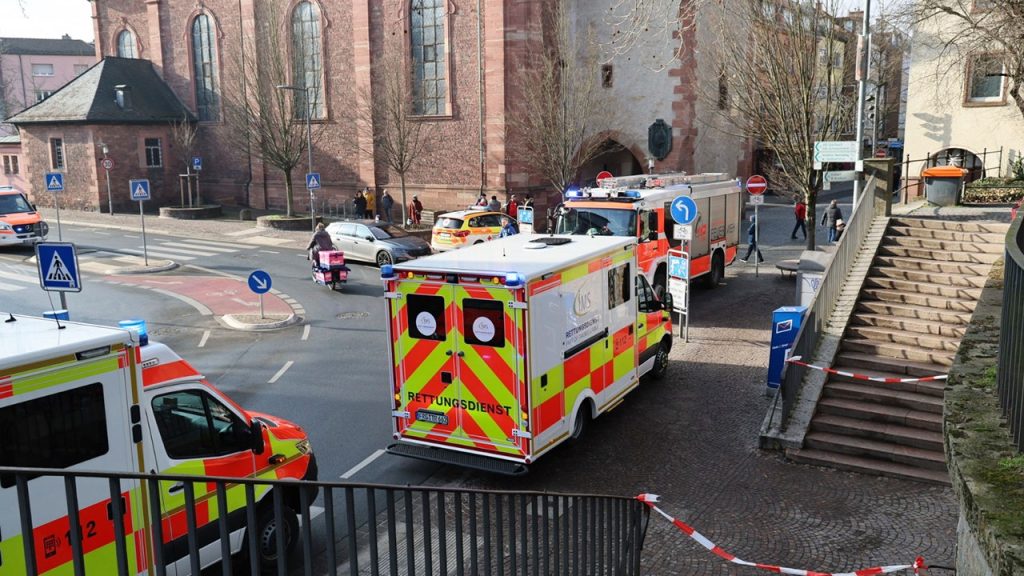The brutal stabbing attack in Aschaffenburg, Bavaria, has sent shockwaves through Germany, claiming the lives of a two-year-old Moroccan boy and a 41-year-old German man, and injuring three others, including another toddler. The assailant, identified as a 28-year-old Afghan national, was apprehended shortly after the attack, which took place in a public park amidst a group of kindergarten children. The incident has ignited a heated political debate about immigration policies, particularly given its proximity to the national election, where the issue of irregular migration holds significant weight. Chancellor Olaf Scholz has demanded an immediate investigation into why the suspect, a rejected asylum seeker, remained in the country and called for concrete consequences to prevent similar tragedies.
The attack unfolded rapidly, with the suspect wielding a kitchen knife against the young boy. The German man, a passerby, courageously intervened to shield the other children, ultimately sacrificing his own life. The swift response of other witnesses, who pursued the attacker until his arrest, prevented further casualties. The two other injured individuals, an adult and a two-year-old Syrian girl, were hospitalized but are expected to recover. The incident has left the community of Aschaffenburg reeling, grappling with the senseless violence that erupted in their midst.
Initial investigations into the suspect’s background have revealed a history of violence and mental health issues. He had previously come to the attention of authorities on at least three occasions, each resulting in psychiatric treatment followed by release. The suspect arrived in Germany in November 2022, applied for asylum in early 2023, and was subsequently informed of his rejected application and instructed to leave the country in December of the same year. A search of his residence at a refugee home yielded no evidence of radical Islamic motivations, but did uncover medication consistent with his psychiatric treatment. While mental illness appears to be a significant factor, authorities are continuing their investigation to definitively determine the motive behind the attack.
Chancellor Scholz’s strong condemnation of the attack underscored the growing frustration and concern surrounding acts of violence perpetrated by individuals who sought refuge in Germany. He labeled the incident an “incomprehensible act of terror” and emphasized the need for a thorough investigation into the failures that allowed the suspect to remain in the country despite his rejected asylum status. Scholz’s insistence on “immediate consequences” reflects the public’s demand for tangible action to address the perceived laxity in immigration policies. His statement, however, stopped short of specifying concrete measures, leaving room for speculation on what actions the government intends to take.
The attack in Aschaffenburg comes on the heels of similar incidents that have fueled public anxiety and intensified the debate surrounding immigration and security. In May, a police officer was killed and four others injured in a knife attack by an Afghan immigrant in Mannheim. Another incident in Solingen in August saw three people killed, allegedly by a Syrian national suspected of Islamic extremism. These incidents have prompted Chancellor Scholz to pledge stricter enforcement of deportation procedures for rejected asylum seekers and criminals, a promise that is now under intense scrutiny in the wake of the Aschaffenburg attack.
The timing of the attack, just a month before the national election, further amplifies its political significance. The issue of irregular migration has become a central theme in the election campaign, with various parties advocating for stricter border controls and accelerated deportation processes. The Aschaffenburg tragedy is likely to further polarize the debate and influence voters’ perceptions of the government’s handling of immigration. The pressure on authorities to demonstrate decisive action and prevent future incidents is mounting, and the outcome of the election could hinge on how effectively they address these concerns.













